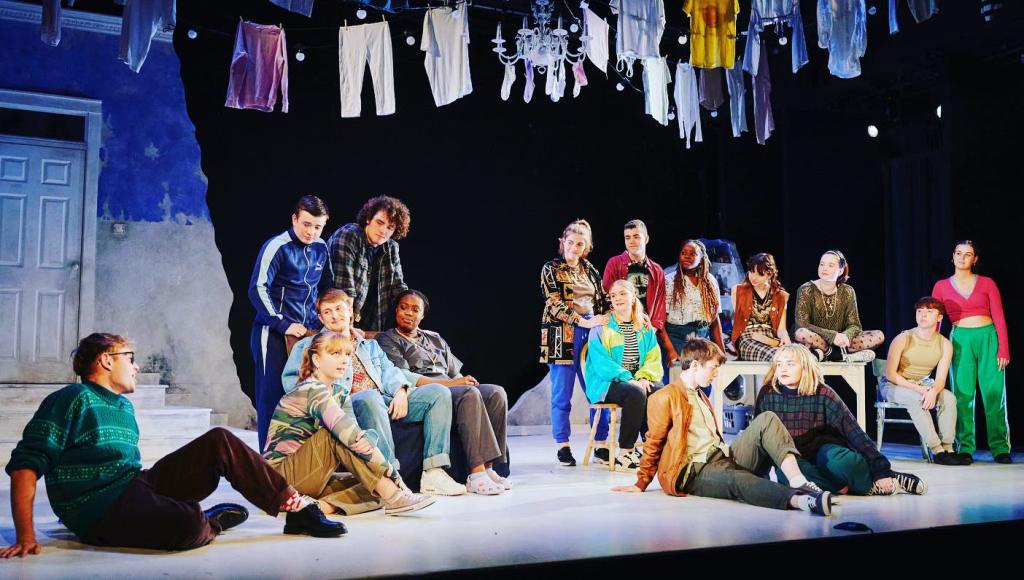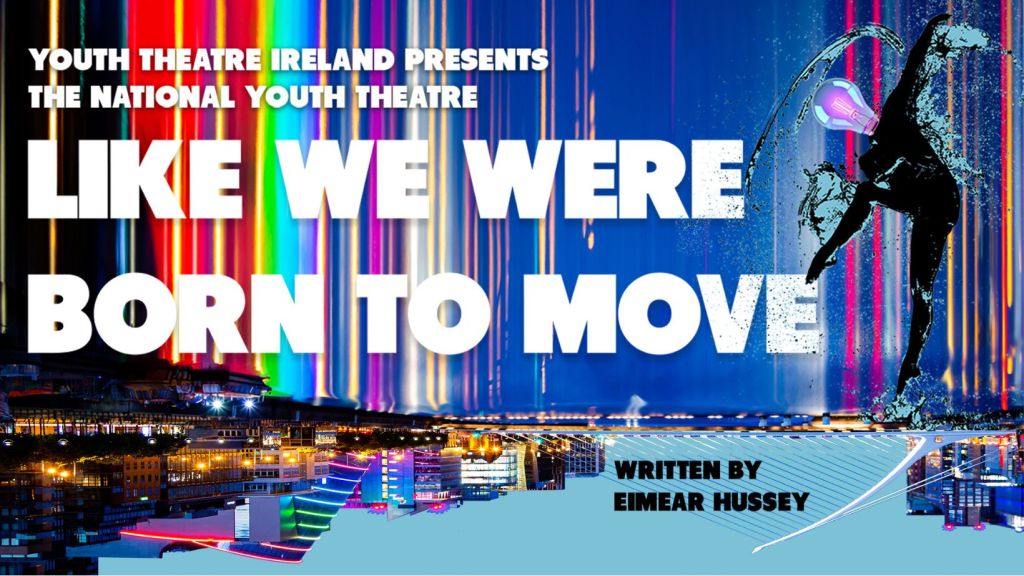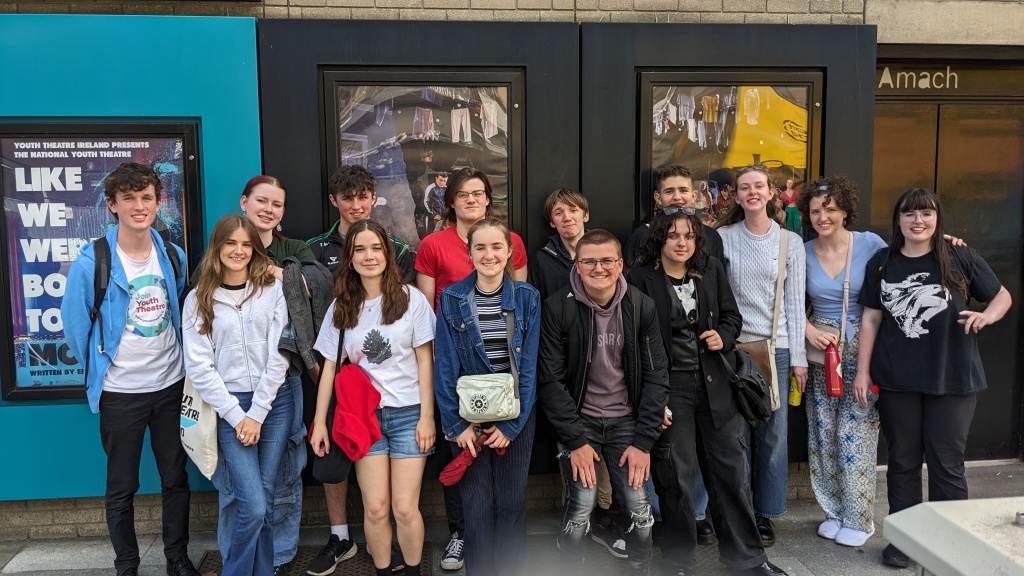Like We Were Born To Move Review By Emma Fanning

The National Youth Theatre is an initiative of Youth Theatre Ireland, and this year celebrates its 40th anniversary. It is supported by the Arts Council, Creative Ireland and the Department of Children and Youth Affairs, and is comprised of a cast of young people between the ages of 16 to 21 from all across Ireland. It is an incredible opportunity for these young people to work with some of Irelands best creative teams on a production that is then put on for the public.
This year, the Young Critics were lucky enough to be invited to see the National Youth Theatre’s production, a brand new play ‘Like We Were Born To Move’, written by National Youth Theatre alumni Eimear Hussey and directed by Niall Cleary.
‘Like We Were Born To Move’ is a celebration of youth. It is a play about wanting to become an adult and make your own decisions, and the terrifying bump when you realise you now have to. It centres around the lives of 16 young people, and their struggles with identity, family, loss, sexuality, money, career and friendship. Dance is also a prominent theme, as many of the characters are dancers themselves, or aspire to be.
When we did a bit of research before we saw the show, I was quite shocked to find out that there was 16 cast members. I worried that this would be way too many characters to keep up with and it would become confusing and muddled, like starting a tv show on season 4 without having seen the previous 3 seasons. However, I was surprised by how well these 16 characters were introduced to the audience. It was done gradually, throughout the run of the show. Sometimes characters were spoken about onstage for a few scenes before they actually made an appearance, making it easier to connect them all in my head. The links and relationships between the characters and how they all managed to be individual and different was truly incredible and extremely well thought out. Occasionally I found myself wishing we could see more of some characters that had slightly less of a main role, and I think this is down to the excellent storytelling in the writing, with each character having such a cleverly crafted identity. Obviously with 16 cast members, some were going to have more obviously main roles as others, but I think the balance between them all worked very well and I was really hooked on all of their stories.
It was really lovely to see the chemistry between all of the actors. As someone pointed out in our panel after the show, for a production about young adults and their relationships with each other, there was no kissing onstage at all. However, in my opinion, this cast didn’t need it. They were so incredibly in sync with each other, in their movements and emotions, and you could really feel the intimacy between characters without ever having to show it. They said everything in the pauses between lines and it was a really beautiful thing to watch a group of young people who clearly have so much love for each other in real life translate that to the stage.

Another feature of the National Youth Theatre is their Design and Technical Theatre ensemble, comprised of 4 young people from across the country. The ensemble are given the incredible opportunity to learn from the professional designers working on the production as well as having some influence in the final designs.
The set was designed by set designer Choy-Ping Clarke-Ng. The set itself was simple enough, however, it was taken from simple to incredibly engaging thanks to all the small details dotting the stage. The mismatched chairs, the paint peeling off the door, the laundry spilling out of the washing machine all painted an endearing picture of a house lived in by a group of young people. Little things like socks hanging off the chandelier and a lamp balanced on an old Roses box added to the aesthetics of the set and really made it seem homely and personal, but also slightly falling into disrepair due to the nature of its tenants. You could really see the influence the Design and Tech Ensemble might have had on making the set feel more relatable to young people today.
The same can also be said for the costumes. Designed by costume designer Mae Leahy, each costume was unique to the characters and perfectly suited each actor. The costumes all seemed to have a slight vintage feel to them which makes me wonder if this had anything to do with the Design and Tech Ensemble’s input as a group of young people. Vintage clothing is hugely coming back into style, especially among ‘Gen Z’, so this made the clothing even more realistic and brought the characters further to life.
Overall, this was a really enjoyable production, and definitely a fresh new take on themes that have been shown in media over and over again. It was incredibly refreshing as a young person to see a production about young people, performed by young people and written by a young person. References to things like Longitude and Gilmore Girls elevated the humour in this play to especially appeal to younger audiences, growing up in the 21st century. The dance storylines were a really good way to add movement into the play as well as touching common issues for young dancers. Themes like sexuality, mental health and dysfunctional family dynamics were dealt with skilfully and with a light touch, while still providing a poignant, bittersweet insight into the highs and lows of the life of a young adult in 2023.

Emma is a member of Act Out Youth Theatre and a 2023 Young Critic.












